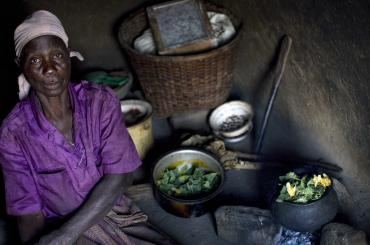
Malawi
-

Why knowing your HIV status can be fatal when there are no treatment options
In 2004, a randomised controlled trial provided individuals in Malawi with information about their HIV status, despite treatment being unavailable in the country at the time. Did knowing one’s diagnosis help or hurt?
-

People think it’s easy to contract HIV. That might not be a good thing.
Despite the high HIV prevalence in Malawi, individuals do not seem to adjust their behaviour to avoid infection—this may be due to the perceived transmission risk being so high that people become fatalistic, assuming they are doomed to HIV infection ...
-

International migration kickstarted structural transformation in Malawi
Evidence from Malawi shows that temporary capital inflows from migrants can permanently reshape rural labour markets by jumpstarting a structural transformation out of agriculture.
-

The challenge of measuring intimate partner violence via self-interviewing
Self-interviewing survey techniques substantially increase reported levels of intimate partner violence, but this may be driven by respondents’ misunderstanding
-

The dynamic effects of cash transfers: Evidence from Liberia and Malawi
Cash transfers improve food security for up to two years, but without an increase in food expenditures and non-agricultural income
-

The impact of multiple savings accounts on microentrepreneurs in Malawi
Improving access to saving tools helps urban Malawian microentrepreneurs save and adjust labour supply decisions
-

Building resilience through social protection: Evidence from Malawi
Resilience measures can predict choice of coping strategies, helping targeted cash transfers improve how vulnerable households respond to shocks
-

Expanding access to clean water for the rural poor: Evidence from Malawi
Offering coupons for free chlorine is an effective way to increase water treatment and prevent waterborne diseases
-

The impact of digital credit in low-income countries
Digital credit does not appear to systematically improve lives, while the lack of transparency raises serious concerns about predatory lending